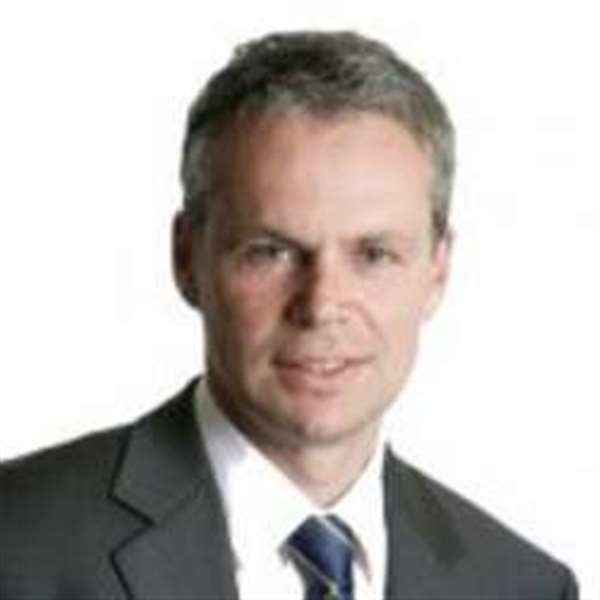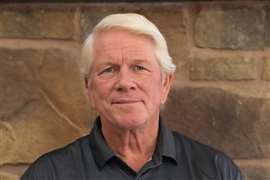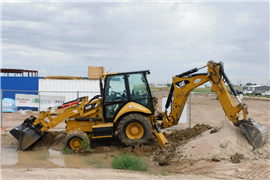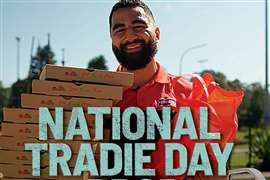Philosophy of equipment rental 101: Can Plato still teach us a thing or two?
25 October 2023
Ben Garner, vice president of North American material handling renter Equipment Depot, likes to speak in terms of ancient philosophy as he urges old-school thinkers to embrace the benefits of technology
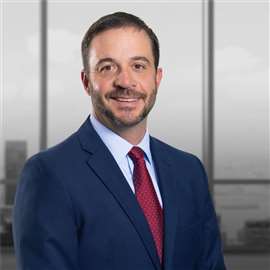 Ben Garner, vice president of Equipment Depot (Image: LinkedIn)
Ben Garner, vice president of Equipment Depot (Image: LinkedIn)
Equipment rental is a straightforward proposition: You own machines that people need and they pay you for the privilege of using them for a limited time. We all understand this, but what if that simple business model we’ve known has now, in reality, grown into something more complex? What will it take for us to really see it - and its potential - with open eyes?
This is a question posed by Ben Garner, vice president of Equipment Depot, a U.S.-based, independently operated material handling rental company. Garner gave a presentation titled, “Applying allegorical metaphysics to rental,” and if that doesn’t tell you something about how this man’s mind works, his next question will: How can the rental industry get over its collective “ontological shock” and see today’s reality for all of its potential?
Feel like you’re in Philosophy 101 again? That’s just how Garner wants it. It’s time to gain a new worldview for the future and stop resisting the developments that are rapidly and irrevocably changing the ways we do business.
Equipment Depot is at the cusp of its own new era, having named Anthony Garcia as its new CEO just last month. For his part, Garcia has said, “The industry is in a state of unprecedented technological advancement. From how automation, electrification, robotics, and AI are playing a role, the potential to reshape the landscape is at our fingertips — and I envision Equipment Depot being on the forefront.”
To dig into some of those changes and what they mean to the company and to the industry, we talked with Garner about all of the above.
Rental Briefing: Tell us what “ontological shock” is?
Garner: Ontological shock is when you experience something that’s so life changing, it forces you to transform everything you do, to the point that you might laugh at the way you did things before. In the speech I gave, I used some silly examples, like what if a Martian walked across the room right now? We would all go home and tell our families, “Martians are real!” We would be laughed at as fools, but that wouldn’t make the truth of it any less real.
It’s like Plato’s allegory “The Cave,” which talks about prisoners who’ve been inside a dark cave their whole lives. Once they are released, they see the world and all of its light, but when they go to tell the remaining prisoners what they saw, they’re met with misunderstanding and disbelief. The light, however, is still real.
Rental Briefing: How does this apply to equipment rental?
Garner: The whole point was to get people to open up to what artificial intelligence and digitalization mean for our businesses, and the importance of data. I talked about our customer value mapping, where we can really track our profitability at the customer transaction level, and I talked about benchmarking efforts, which are finally getting around to the rental industry.
I think artificial intelligence and digitalization are going to be life changing to how we do business, frankly, in every aspect of the world, but we already see it in rental. We’ve gone from preventive maintenance fault codes to predictive maintenance. As we gather more data and more experience in real-life situations, the OEMs will gather that data and rental companies will be notified that the machine has an error or is about to go bad before the operator knows. That’s exciting in what it means for the life of our machines, but it could also save people’s lives. Safety sensors, like we already see on some cars, can automatically slow your vehicle down to prevent hitting obstacles and so on.
JLG has already launched something to that effect, which is not fully autonomous but some of its operation is. Operators can now control scissor lifts from an app. I can use augmented reality to see, virtually, if a machine will work inside of a space.
There are some cool things that are fun and salesy, but there are also changes happening throughout the whole rental process, from beginning to end. Contractors are starting to see a little bit more involvement from the beginning, sharing the APIs from their bidding and mapping out how the usage on our machines can help them move the project along.
Rental Briefing: Can you walk me through what that might look like?
Garner: Contractors are using statistics on actual hours in the machines in realistic applications to bid their jobs and plan the phases and the spacing of assets. For example, when they scaffold the side of a building, and they have seven trades trying to work on an application, it used to be they would just scaffold it and say okay, you get it next week, and they get it that week. Now, they can build a model of when certain types of machinery can come in and who can use them. It’s basically logistics for maximum efficiency.
Rental Briefing: What do you say to those who are nervous about changing the way they do things after so many years?
Garner: That was one of the reasons I gave three or four examples of the ontological shock, where people literally laughed at the way we did things before. The message is: If you hear one thing from this talk, just accept that it’s okay to move into this digital transformation. It’s 2023 in America. I can’t explain the efficiencies you’ll get by some of the most rudimentary technology that we now have, much less the direction that we’re going to be in probably two or three years from now with AI.
I call it getting out of your cave - going back to Plato’s allegory of The Cave - you’ve just got to accept the changes, dip your toe in and you can realize exponential benefits.
A lot of people, especially on the construction side, are old school. They don’t like letting go of some things. I was at a big convention last year in Florida and the COO of one of the biggest rental companies told me he had the same problem with his customers using their online portal to rent equipment. They still have not got all the logic built around qualifying the customer for the exact right machine. So there’s still a relationship aspect to the business, but some of the sales reps don’t want to share the technology because they feel they’re going to be replaced by it. I’m one of the first to say that sales reps who embrace the technology free up so much of their time that they can actually do a little more relationship building.
Rental Briefing: How would you characterize the rental industry’s readiness to embrace the changes that are coming?
Garner: We’re way far behind on a lot of it. Look at all of the technological advancements they’ve made in the European market. For example, we still don’t have light sensors on telehandlers in America. They’ve had them forever over there. More and more telehandlers are being built in the United States, so when are we going to start using those regularly?
Rental Briefing: Is there hope for the tech laggards?
Garner: I do think construction rental is far more advanced than material handling rental. Look at all the construction folks that are using and embracing telemetry and things like that. Look at the pay-as-you-use model in construction; we call it the Uber effect. Because of the technological advancements with telemetry and the CANBUS system, we can now track actual machine usage, and we’re seeing it in billing as well, which could be an opportunity for us in the rental business. Perhaps we can finance our assets with leasing companies on a pay-as-you-use basis. There’s no end to the possibilities.
STAY CONNECTED



Receive the information you need when you need it through our world-leading magazines, newsletters and daily briefings.
CONNECT WITH THE TEAM
